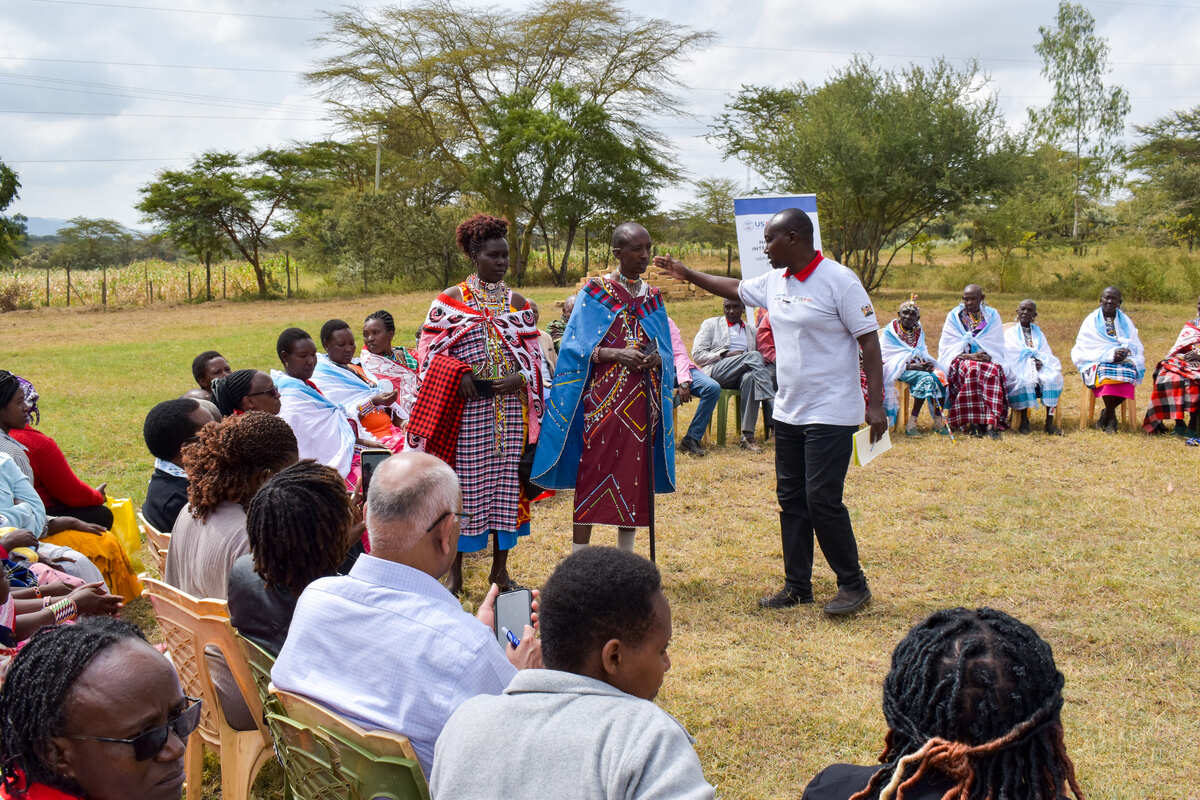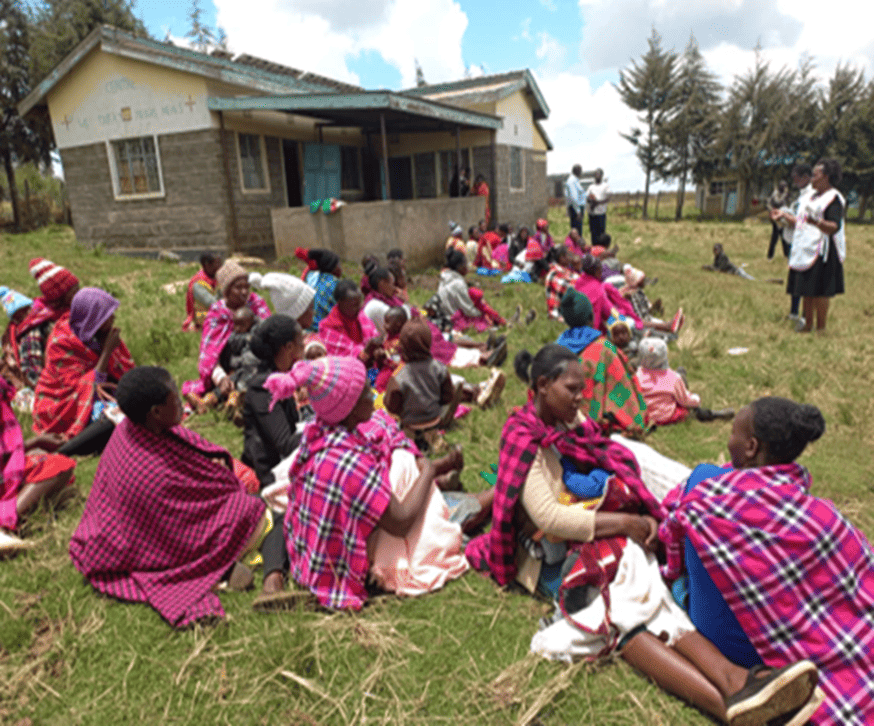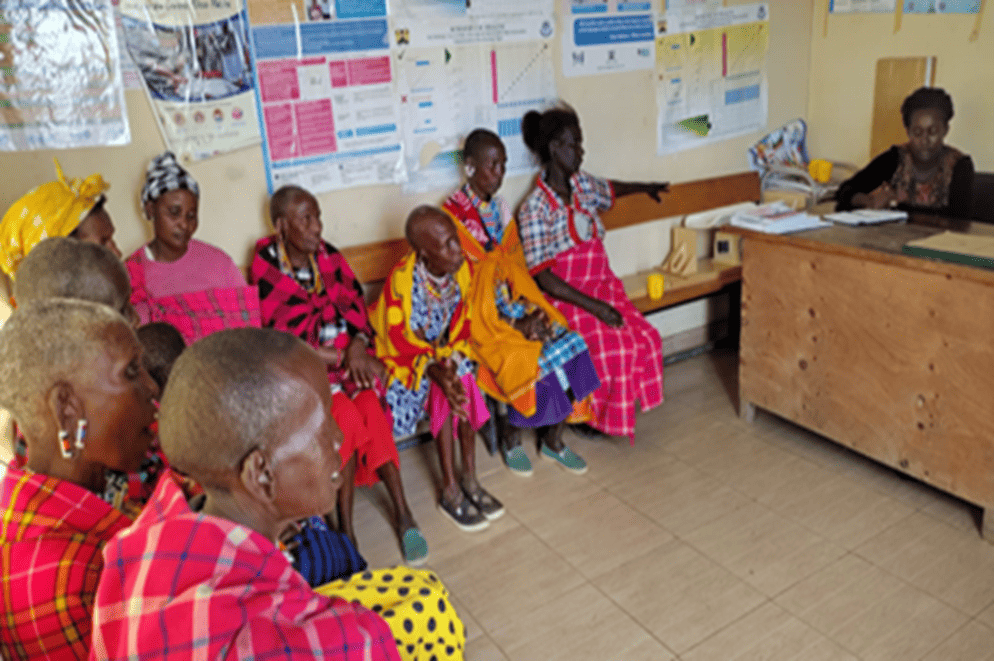From Tradition to Advocacy: Traditional Birth Attendants Spearhead Safe Maternal Health Services
October 28, 2024

In the Maasai community, Traditional Birth Attendants (TBAs) have long held a revered status, offering trusted assistance during home deliveries. The TBAs were also key custodians of Maasai culture and majority of them were also Female Genital Mutilation (FGM)/cutting practioners, which is a key contributor to maternal mortality. To reduce the risk of maternal mortality and eliminate FGM, NPI EXPAND worked directly with TBAs to help them understand the negative health impacts of FGM and enlist them as change agents.
Persistent challenges in maternal and neonatal health indicators in Kenya prompted the government to take decisive action. A national reproductive health policy was introduced to transition TBAs into mother companions and referral champions, aiming to bridge the gap between women of reproductive age and local health facilities, ensuring timely access to skilled maternal and childcareservices and in addition addressing the cessation of FGM in line with ICPD +25 (International Conference Population and Development) Kenya commitments. This strategy would allow TBAs to retain their status in the community while steering them away from the harmful practices of FGM.
In January 2023, NPI EXPAND Kenya collaborated with local village leaders and women’s groups to identify TBAs that were well known and respected in their communities for their assistance in pregnancy, childbirth, and maternal care. As part of this process NPI EXPAND trained the TBAs in line with the updated National curriculum. NPI EXPAND began with a mapping process of TBAsin the areas around the villages served by facilities that were being supported by the project.
A total of 408 TBAs were identified and re-oriented with the new National curriculum to becomemother companions as well as advocates for the use of family planning. The delivery of the re-orientation curriculum to the TBAs was done in collaboration with county and national government(Ministry of Health) and the NPI EXPAND Kenya local partners, including HealthRight Kenya (HRK), National Organization for Peer Educators (NOPE), Anglican Development Services- South Rift (ADS SR), and Community Health Partners (CHP).
This initiative provided ongoing support beyond the initial training, and connected TBAs with nearby health facilities for collaborative maternal and child health services. The project successfully re-oriented and trained 408 TBAs using the national curriculum, linking them to facilities, and establishing a robust referral system with follow-up protocols for monitoring the outcomes of mothers and babies in case of complications or loss.
According to the 2019 Kenya National Bureau of Statistics (KNBS) national census, Narok County had a maternal mortality ratio (MMR) of 522/100,000, an increase from the Kenya Demographic Health Survey (KDHS) 2014 where it had been recorded at 434/100,000.
At the national level, KNBS recorded the national MMR at 355/100,000 in 2019 and therefore Narok remains a county of interest in improving quality of maternal health services. In addition, the summary table shows the other reproductive health indicators including family planning that are still below the national estimates.
Additionally, only 55% of women have a minimum of four antenatal care (ANC) services during pregnancy while the national average is at 66% according to the 2022 KDHR. The maternal mortality ratio, reflecting the number of women dying from pregnancy-related causes, stands at 355 deaths per 100,000 live births. According to a 2022 United Nations Population Fund report, this means that nearly 5,000 women and girls die annually due to pregnancy and childbirth complications. Narok County recorded an MMR of 522 deaths per 100,000 live births in 2019 as of the data by Kenya National Bureau of Statistics (KNBS), which remain higher than the national average.
Nareyio Kipira, a TBA, underscored the importance of formal training, recognizing both her innate abilities and the constraints of her expertise. Following her orientation, she transformed into a champion for hospital deliveries, directing 15 women to Aitong Health Centre for safer deliveries. In doing so, she emphasized the critical role played by proficient healthcare professionals and well-equipped facilities.
Nareyio articulated her newfound perspective, stating, “I now comprehend the wisdom behind advocating for women to give birth in hospitals. Unlike TBAs who may lack essential skills and equipment, hospitals are equipped with the necessary tools and staff capable of ensuring safe deliveries.”
The training not only imparted knowledge about health safety but also instilled a determination among TBAs
to change their attitudes towards accompanying mothers to health facilities for delivery. NPI EXPAND Kenya collaborated closely with the Ministry of Health (MOH) to ensure Respectful Maternity Care (RMC) training for TBAs and healthcare workers. Post-orientation, TBAs pledged to be advocates for maternal health, dispelling myths and harmful practices.
David Lemase, a nurse at Olchorro Health Centre, recognizes the crucial role played by TBAs in bridging the gap between the community and healthcare facilities. He emphasizes, “By involving communities, especially TBAs, we have witnessed increased utilization of our skilled delivery services. It is essential to encourage and support TBAs to strengthen the connection between the community and our facility.”

